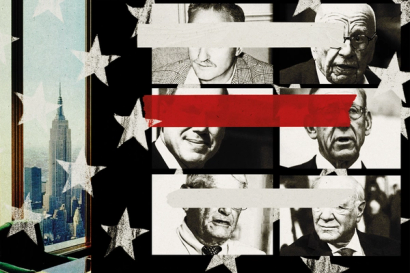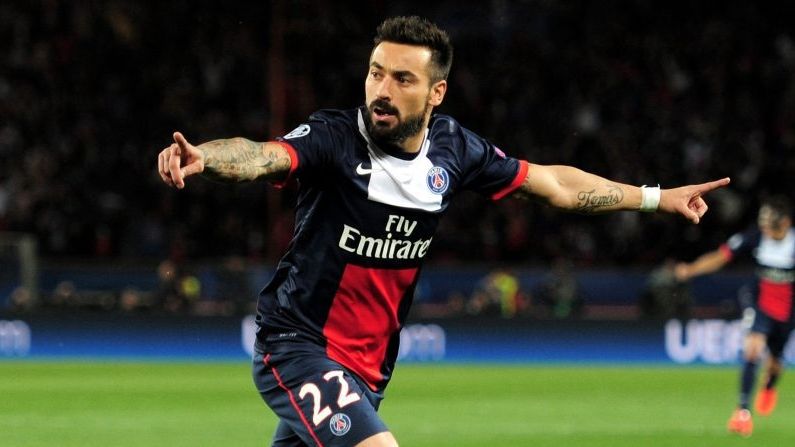

Should footballers be earning £798,000 a week?
Oliver Pickup investigates the murky world of shady agents, super-rich owners and greedy players
Words: Oliver Pickup
Argentine forward Ezequiel Lavezzi was presented with the enviable scenario of earning £798,000 per week when he became the world’s highest-earning footballer in February 2016. But he wasn’t signing for Real Madrid, Barcelona, Manchester United, or one of the other giants of the so-called beautiful game – rather for the appropriately-named Hebei China Fortune.
Embarrassingly, Lavezzi completed his first season in the Chinese Super League (CSL), which runs from March to November, having scored precisely zero goals, in a campaign during which his participation was restricted to 10 games after he fractured his arm on international duty.
Adding insult to injury, the South American, one of a cluster of top players who have moved east in their prime, then pulled a face to mimic Chinese characteristics in a photoshoot that was designed to promote the 2017 CSL. It was no laughing matter, especially not for President Xi Jinping, who is serious about his football and in 2015 revealed a 50-point reform plan to supercharge China.
The document laid out the grand plans: 100 million children under the age of six must be coached football every day at school; 50,000 specialist football schools will be established by 2025; 40 million citizens should be playing the sport three years from now; and by 2050 China hope to reach superpower level, and possibly even have a World Cup to its name.
Argentine forward Ezequiel Lavezzi became the world’s highest-earning footballer in February 2016
These are extremely lofty aims, especially when one considers that China has hitherto featured at just one World Cup (in 2002 when the team lost all three group games and failed to net even a solitary goal) and at the time of writing is ranked 77th by Fifa, below Curaçao (population: 160,337), Jamaica, and Armenia. However, it’s not as if, in the world’s most populous country – 1.37 billion at the last count – the raw materials are lacking. Money isn’t an issue either.
For example, Marcello Lippi, who managed his home country Italy to World Cup glory in 2006, has been in charge of the national team since last October. And another big-money manager to have lifted the most-coveted trophy in football, Luiz Felipe Scolari (who when guiding Brazil to victory in 2002 handed his players photocopies of chapters from Sun Tzu’s famous Chinese military strategy treatise The Art of War, ironically), has led Guangzhou Evergrande Taobao F.C. to the last two CSL titles, continuing the club’s winning run which stretches back to 2011. ‘Big Phil’, formerly employed by Chelsea, also claimed the Asian Champions League in 2015, in his first season. So is the munificence paying off?
Placing the cost of internationally-renowned managers to one side, the latest report by Fifa’s Transfer Matching System, an arm of the sport’s governing body, showed that a record amount of $4.8 billion (£3.69 billion) was spent on transfers in 2016, and that was largely thanks to the sudden growth of football in China, which last year was the fifth biggest-spending nation, behind England, Germany, Spain, and Italy. Indeed, the $451.3 million (£347 million) lavished on transfer fees by CSL clubs in 2016 represented a 168 per cent increase on the previous year. “The rapid nature of this growth is unprecedented,” the report posited.
Among the many eye-catching recent deals, in December Shanghai SIPG tempted Brazilian playmaker Oscar, who is nearing a half-century of international caps and turns 26 in September, to move from the Chelsea bench for £60 million – an Asian record. Arsène Wenger, who joined Arsenal in 1996 after a stint with Nagoya Grampus Eight during China’s first wave of significant financial investment in the sport, remarked that the fee was “a surprise… a distortion”. Oscar’s value was questioned further when he was served with an eight-match CSL ban in June after sparking a 50-man brawl in a league game.
Further, Lavezzi’s compatriot Carlos Tevez, the first person to break the £200,000-a-week barrier in the Premier League when he signed for Manchester City, is allegedly the second-best remunerated footballer on the planet, having joined another Chinese club, Shanghai Shenhua, at the end of 2016. His earnings of £32 million a year, which breaks down a weekly wage of £634,615 – reportedly £135,000 more than the latest contract agreed by Barcelona’s Lionel Messi, another Argentine, and widely considered the greatest footballer to have ever played – failed to buy his silence about the sub-standard football.
“I don’t think [the Chinese clubs] will be able to compete with any of the big European sides,” Tevez said in an interview with Movistar, a Spanish television station, in May. “Even if the best players come, I think the football is very different and the fans treat it in a completely different way as well. I don’t think they will get there [on a par with European football] in 50 years. Technically [Chinese] players are not very good.”
Xu Guoqi, a Harvard-educated expert on modern Chinese history at the University of Hong Kong, tells me: “It may sound like an impossible mission, to become a football superpower in 33 years, but to Xi Jinping achieving that would be a passage to greatness for the nation, and it is an important part of his dream for China.
The latest report by Fifa’s Transfer Matching System showed that a record amount of $4.8 billion was spent on transfers in 2016
“It will take a miracle for China to win a World Cup, but with recent Fifa rules allowing more teams – eight – from Asia, then actually qualifying for a tournament seems more achievable. Xi really hopes that China can host a World Cup, too, and this is something that I expect will happen, if not in 2030 then soon afterwards. It seems to me that the future of Chinese football is bright, for both the elite teams and the general population. Xi is an ambitious man. If he pulls this off, he would be the hero of China.”
Dan Jones, lead partner in the Sports Business Group at Deloitte, edited the organisation’s 26th Annual Review of Football Finance, published in July, and believes that the purse strings of China’s clubs will now be tightened.
“The General Administration of Sport, the government body responsible for regulation of sport in China, stated publicly at the end of January 2017 that a cap on player salaries and transfer fees would be established to control ‘irrational investment’,” he says.
“In the same month, the Chinese Football Association implemented a new, stricter rule allowing only three foreign players to participate for a club in a Chinese Super League fixture.
“More recently, in June, the Chinese FA announced that clubs who are loss making and spend in excess of 45 million yuan (c.£5 million) on a foreign player must pay an amount equivalent to the excess into a national fund to develop young Chinese players. Such rulings seem likely to significantly restrain spending on foreign playing talent.”
While Chinese investors have already spent more than $2 billion (£1.53 billion) buying stakes in a raft of high-profile European clubs – such as AC Milan, Inter Milan, and England’s West Bromwich Albion, Birmingham City, and Wolverhampton Wanderers – there has been expansion by Europeans in the East’s football market, too. For instance, Barcelona recently opened a €4 million (£3.58 million) complex on Hainan, a tropical holiday island at China’s southernmost point, while Bayern Munich, Manchester City, and Real Madrid have all expanded into the country. “The sheer size of this growing market is an attractive prospect for European clubs looking to increase their fan base and revenues,” Jones explains.
James Montague, whose latest book, The Billionaires Club: The Unstoppable Rise of Football’s Super-rich Owners, was published at the end of July, is concerned that Xi’s involvement is central to China’s footballing fortunes. “From the huge salaries paid to improve the Chinese league by importing big-name players, to the massive expansion of academies to nurture talent, to the purchasing of European football clubs, this is a government-orchestrated attempt to become an important player in what they see as the entertainment industry,” the Belgrade-based author says.
The sheer size of this growing market is an attractive prospect for European clubs looking to increase their fan base and revenues
“It seems inconceivable that China can’t find a World Cup-winning team from almost 1.4 billion people, eventually. The problem is, what happens when Xi Jinping leaves? This is driven by him. Maybe his successor will prefer baseball, and then it all ends.”
Montague was spurred to write his third book having become increasingly disgusted at the amount of money sloshing around football, in both the East and West. Secretive figures – namely agents (including Jorge Mendes, fixer for Real Madrid’s Cristiano Ronaldo and Manchester United manager José Mourinho, and Mino Raiola, who hasn’t denied pocketing £41 million for Paul Pogba’s world-record £89 million transfer from Juventus to Mourinho’s Manchester United last summer) are enjoying ever-greater influence, he says.
With experience of living in the Middle East, he was alarmed when Manchester City was bought, in September 2008, by an investment company headed by Sheikh Mansour, who is currently deputy prime minister of the United Arab Emirates (UAE), and member of the ruling family of Abu Dhabi. “I knew who they were and where they made their money,” he continues. “I was also shocked that they would open themselves up to that level of publicity. These guys usually work behind the scenes. Plus, there were many quite shocking aspects of life in the UAE – the lack of democracy, and the appalling treatment of migrant workers – none of which were front and centre of the debate about the ownership of football clubs.”
According to Montague’s research, there are many worrying signs that football, driven by greed, has turned rotten and ugly. “The most shocking discovery was the extent of exploitation, torture, manipulation and hypocrisy that surrounds migrant workers from Asia that are building Gulf Arab states,” he says. “The royal families of the UAE and Qatar are profiting hugely from a system that is a form of modern-day slavery.
“I travelled to Bangladesh and followed the route, meeting illiterate workers in the Bangladeshi countryside all the way to the camps of workers building the World Cup [hosted by Qatar in 2022], or working on projects where the same people who run Manchester City are in charge.”
In August, the 26th season of the Premier League, the richest football division in the world, kicked off, following a campaign which generated a record-smashing forecasted revenue of £4.5 billion, according to Deloitte’s aforementioned Annual Review of Football Finance. That colossal figure, boosted by a new broadcast rights deal – with total Premier League central distributions increased by 46 per cent to £2.4 billion, an average increase of £38 million per club – is more than all 92 professional clubs combined managed (£4.4 billion) during the previous campaign.
Montague believes money will erode football as we know and love it, and it is the traditional fans who will suffer the most. “In 10 or 20 years we will see greater inequality, less merit, perhaps the elimination of promotion and relegation and the introduction of quotas to tournaments for so-called ‘legacy teams’,” he predicts. “I can see a future where clubs are completely untethered from their traditional homes. You can already start to see it happening. Once clubs were earning more from TV money and commercial deals than gate receipts, the importance of keeping your core customers happy becomes less important.”
As an industry, football, the beautiful game, has become a monstrously monied business across the world. Consequently, it has never been as grotesque, not that Lavezzi, with his £40 million annual salary, will mind too much.


